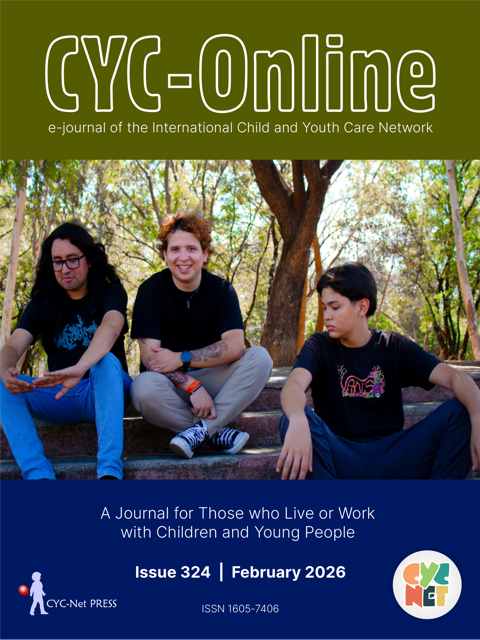In the News ...
Conference Program
The full conference program is now available here.
Silent Auction
Support CYC-Net and its mission to provide open-access learning resources for those working with children and youth in care.
How it works
Browse
donated items throughout the conference, place your bids, and check
back often—highest bid at closing wins! No auctioneer, bid at your
own pace.
Where & When
In person at
the 2026 World Conference, St. John’s, NL
June 23–26, 2026
We’re accepting Auction items!
Easy-to-transport items such as local artwork, cultural items,
books, trainings, clothing, or youth creations—really, almost
anything! Physical items must be present at the conference.
To donate, email: cycworldconference2026@cycanl.ca Please include a short description, approximate value, and a photo of your item.
Thank you for supporting CYC-Net!

Supervision in Child and Youth Care Practice
2nd Edition
1. Mattering: The Core of Supervision | Grant Charles and Thom Garfat
2. Relational Supervision: Getting Out of Your Office and Leading with Intention and Connection | Michelle Holbrook, Andraya MacMillan, Mairi Macintyre and Ron Smith
3. Twenty-Nine Ways of Connecting Child and Youth Practitioner and Supervisory Practice: Helping the Transition by Building on our Existing Skills, Attitudes and Values | Grant Charles
4. The Relationship Boundaries that Control Supervision | Jack Phelan
5. A Daily Life Events Approach to Relational Child and Youth Care Supervision | Thom Garfat, Leon Fulcher and James Freeman
6. Individual Developmental Plans and a Relational Child and Youth Care Supervision Cycle | Thom Garfat and Grant Charles
7. Supervision as an Act of Service | James Freeman and Kelsie Tatum Martinez
8. Unspoken Realities of Becoming a New Supervisor | James Freeman and Toné Reyes
9. Developing Reflective Supervision Training: A Case Study | Virginia Hervey and Pennie Sibbald
10. Humour in Supervision? | John M. Digney
11. External Models of Supervision | Kiaras Gharabaghi
12. Conclusion | Grant Charles, James Freeman and Thom Garfat
CYC-Online
February 2026 (No. 324)
Editorial Comment: Imaginative AI | Shemine Gulamhusein
A Word I Needed | James Freeman
Clinical Profiles as Starting Point for Service Matching | Kiaras Gharabaghi
Why Today’s Teens Are Taking Fewer Risks: How can we encourage appropriate risk taking and independence | Julie Baron
Roots in Many Places | Sorcha Betournay
Radicalizing the Children | Hans Skott-Myhre
From Our Archives: Every Child Needs a Home | John Stein
Postcard from Leon Fulcher from New Zealand















































